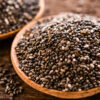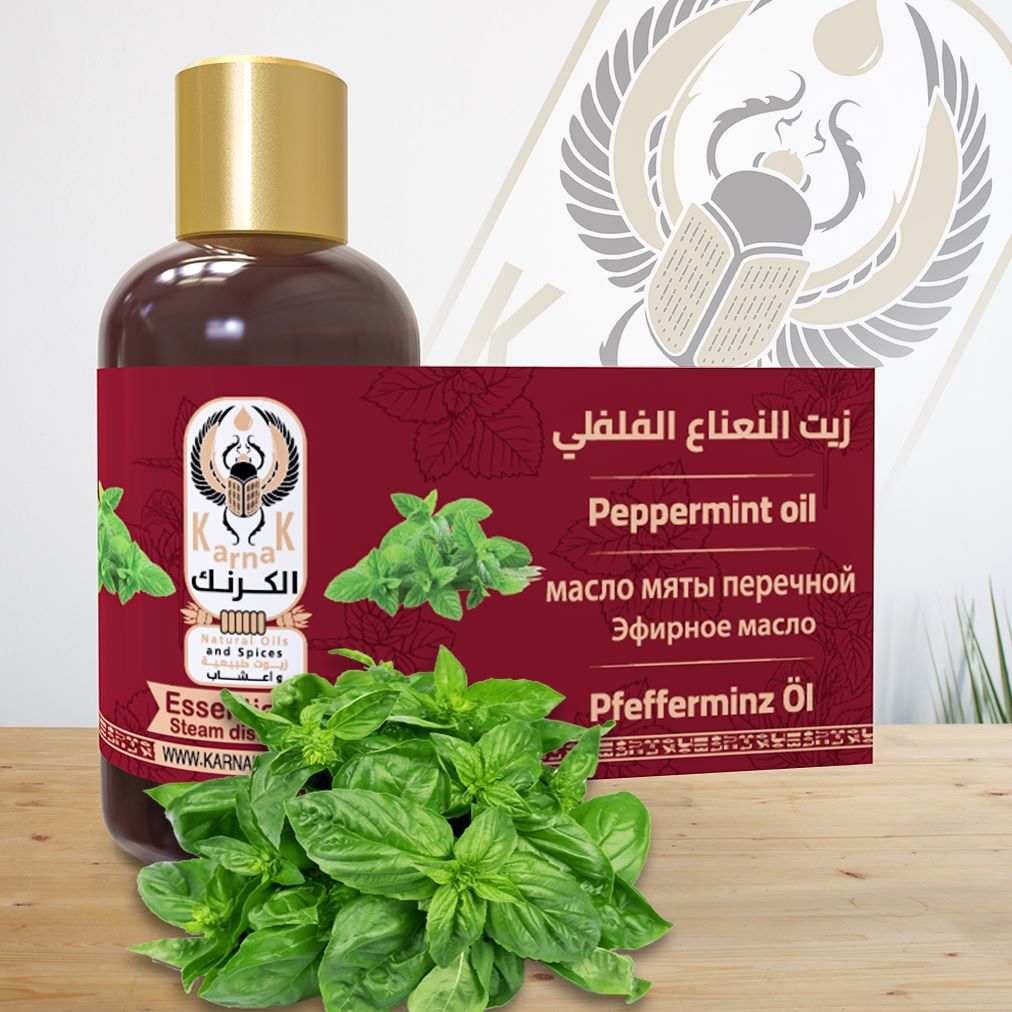Get 25% discount on your first order!

Peppermint oil
15.00 $ – 30.00 $
Add to cart
Sale!
15.00 $ – 30.00 $
Peppermint oil
- Scientific Name: Mentha piperita, Family Lamiaceae
- Parts used: Leaves
- Method of extraction: Steam Distillation
- Appearance: pale yellow to green
- Purity: 100%
- Main active ingredients: menthol and menthone.
- Main uses: Relieves muscle and joint pain, increases energy and improves exercise performance, sinus care and respiratory aid, seasonal allergy relief, alleviates headaches, improves IBS symptoms, reduces nausea and vomiting, improves colic symptoms, supports Oral hygiene and freshens breath, relieves itching, for acne, Sunburn protection and relief, promotes hair growth and reduces dandruff.
size
Choose an option
Add to cart
Buy Now
Peppermint oil comes from Mentha piperita Family Lamiaceae, It is a hybrid herbaceous plant, originally from the crossing between spearmint (Mentha spicata) and water mint (Mentha aquatica).
Archaeologists have discovered 3,000-year-old dried peppermint leaves in the inner chambers of Egyptian pyramids. Because the oil that could be extracted from the leaves was considered very valuable, and they wanted to bring as much wealth with them to the afterlife as they could.
Peppermint and its many uses can go back to ancient Egypt. In 1550 B.C., there is evidence in Egyptian medical text that says about peppermint’s ability to ease stomach ailments. Peppermint was even valuable enough in ancient Egypt to be used as a form of money. This use of peppermint as currency traces to the current day for the word “mint” as a place for minting money.
The ancient Romans often used peppermint to flavor special dishes served during feasts, including it in both sauces and wine. The decorative plant was also commonly presented on dining tables, and noblemen were known to braid its long stems into festive crowns and wear them. Ancient Hebrews covered the floors of synagogues with mint on special occasions because of its pleasant and calming scent.
Chemical composition :The main constituents were menthol (50-60%) and menthone (20-30%). Further components were menthyl acetate, 1,8-cineole, limonene, beta-pinene, and beta-caryophyllene.
Benefits :
1. Relieves muscle and joint pain
Peppermint oil is a very effective natural painkiller and muscle relaxant. One clinical trial indicates that it performs as well as acetaminophen (strong analgesic).
When peppermint oil applied topically has pain relief advantages associated with fibromyalgia and myofascial pain syndrome. Researchers found that peppermint oil, eucalyptus and capsaicin may be helpful because they work as topical analgesics.
To use peppermint oil for pain relief, simply apply two to three drops topically to the area of concern three times daily.
2. Increases energy and improves exercise performance
The results of the experiment that mad for healthy male students support the effectiveness of peppermint essential oil on the exercise performance, gas analysis, spirometry parameters, blood pressure, and respiratory rate in the young male students. Relaxation of bronchial smooth muscles, increase in the ventilation and brain oxygen concentration, and decrease in the blood lactate level are the most plausible explanations.
To boost your energy levels and improve concentration with peppermint oil, take one to two drops internally with a glass of water, or apply two to three drops topically to your temples and back of neck.
3. Sinus care and respiratory aid
Peppermint oil is one of the best essential oils for colds, the flu, cough, sinusitis, asthma, bronchitis and other respiratory conditions because it has antimicrobial, antiviral and antioxidant properties.
Peppermint aromatherapy can help unclog your sinuses and offer relief from a scratchy throat. It acts as a refreshing expectorant, helping open your airways, clear mucus and reduce congestion.
Mix peppermint oil it with coconut oil and eucalyptus oil to make my homemade vapor rub. You can also diffuse five drops of peppermint or apply two to three drops topically to your temples, chest and back of neck.
4. Seasonal allergy relief
Peppermint oil is highly effective at relaxing muscles in your nasal passages and helping clear out the muck and pollen from your respiratory tract during allergy season. It’s considered one of the best essential oils for allergies because of its expectorant, anti-inflammatory and invigorating properties.
Diffuse peppermint and eucalyptus oil at home, or apply two to three drops of peppermint topically to your temples, chest and back of neck.
5. Alleviates headaches
Peppermint has the ability to improve circulation, soothe the gut and relax tense muscles. All of these conditions can cause tension headaches or migraines, making peppermint oil one of the best essential oils that treat headaches.
To use it as a natural headache remedy, simply apply two to three drops to your temples, forehead and back of neck. It will begin to ease pain and tension upon contact.
6. Improves IBS symptoms
Peppermint oil capsules have been shown to be effective at naturally treating irritable bowel syndrome (IBS). Peppermint oil for IBS reduces spasms in the colon, relaxes the muscles of your intestines, and can help in reducing bloating, gassiness, abdominal pain or discomfort, diarrhea, constipation, and urgency at defecation.
To help relieve IBS symptoms, try taking one to two drops of peppermint oil internally with a glass of water or adding it to a capsule before meals. You can also apply two to three drops topically to your abdomen.
7. Reduces nausea and vomiting
Peppermint oil is very effective in reducing nausea and vomiting.
To get rid of nausea, simply inhale peppermint oil directly from the bottle, add one drop to a glass of distilled water or rub one to two drops behind your ears.
8. Improves colic symptoms
Peppermint oil can be used as a natural Complementary and Alternative Medicine for colic without the side effects associated with prescribed medications.
For infants it decreases frequency and duration of colic as it relieves gassiness, bloating and stomach discomfort.
9. It supports Oral hygiene and freshens breath
For well over 1,000 years, the peppermint plant has been used to naturally freshen breath because peppermint oil (along with tea tree oil and thyme essential oil) displayed antimicrobial activities against oral pathogens, including Staphylococcus aureus, Enterococcus faecalis, Escherichia coli and Candida albicans. So generally it supports oral hygiene.
You can add a drop of peppermint oil right to your store-bought toothpaste product and to your mouthwash or add a drop under your tongue before drinking liquids.
10. Relieves itching
Menthol found in peppermint oil is a powerful anti- itching and anti-pruritus . It decrease pain comes from itching.
Simply apply two to three drops topically to the area of concern, or add five to 10 drops to a warm water bath.
If you have sensitive skin, combine it with equal parts carrier oil before topical application. You can also mix it into a lotion or cream instead of the carrier oil.
11. Peppermint oil for acne
Peppermint oil is known to be naturally blessed with strong antiseptic, antibacterial and anti-inflammatory properties that not only reduces the amount of the acne bacteria P. acnes, but also soothes the red, angry, irritated inflammations which at times can become extremely painful. Peppermint oil acts as an excellent cleansing agent that decrease accumulation of excess oil, dirt, debris and dead skin cells on the upper layer of your skin that blocks your skin pores with powerful astringent properties that help to balance your skin pH.
It is not recommend using peppermint oil by itself, but it may help along with traditional acne treatments.
12. Sunburn protection and relief
Peppermint oil can hydrate areas affected by sunburn and relieve the pain. It can also be used to help prevent sunburn.
An in vitro study found that peppermint oil has a sun protection factor (SPF) value that’s higher than most other essential oils, including lavender, eucalyptus, tea tree and rose oils.
To boost healing after sun exposure and help protect yourself from sunburn, mix two to three drops of peppermint oil with a half-teaspoon of coconut oil, and apply it directly to area of concern.
13. Promotes hair growth and reduces dandruff
Menthol is the main active constituent in peppermint oil that has been proven to be a powerful antiseptic agent, so it works as a powerful anti-dandruff because it helps in removing germs that build up on scalp and make dandruff. It also can naturally thicken, nourish damaged strands and to be a good treatment for thinning hair because it stimulates the scalp and hair follicles and increasing blood circulation for hair growth, and its strong menthol smell is sometimes used to treat lice (it suffocates them).
Thanks to the fact that it combines anti-dandruff activity and stimulating scalp, hair follicles and increase blood circulation for growth, you can consider it as one of the best oils for hair growth.
To use peppermint oil simply add two to three drops to your shampoo and conditioner. You can also, make a spray product by adding five to 10 drops of peppermint to a spray bottle filled with water or simply massage two to three drops into your scalp while showering.
Related products
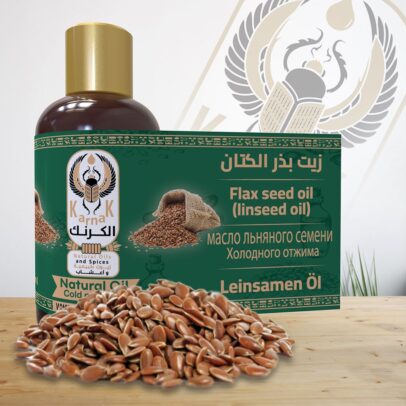
Select options
This product has multiple variants. The options may be chosen on the product page
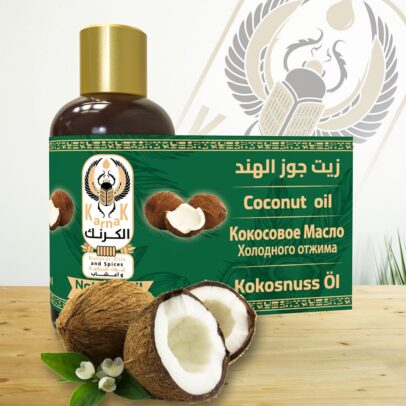
Select options
This product has multiple variants. The options may be chosen on the product page
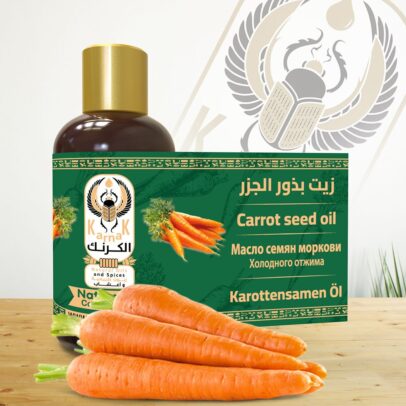
Select options
This product has multiple variants. The options may be chosen on the product page
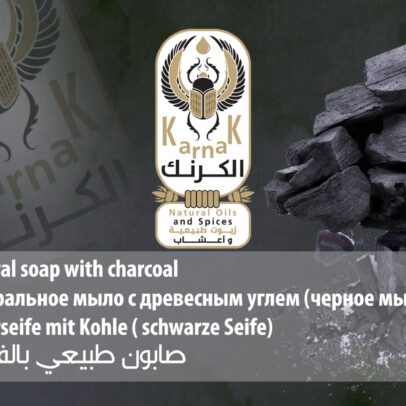
Select options
This product has multiple variants. The options may be chosen on the product page
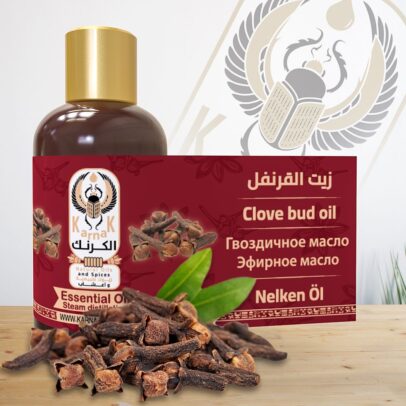
Select options
This product has multiple variants. The options may be chosen on the product page
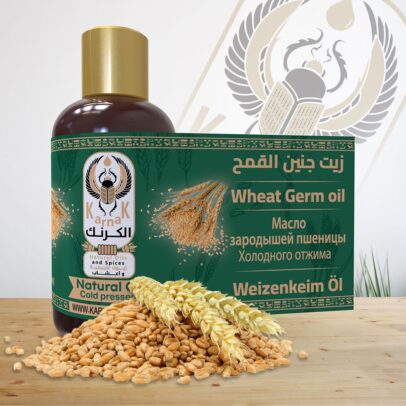
Select options
This product has multiple variants. The options may be chosen on the product page
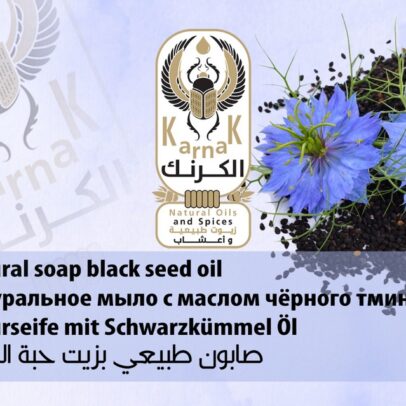
Select options
This product has multiple variants. The options may be chosen on the product page
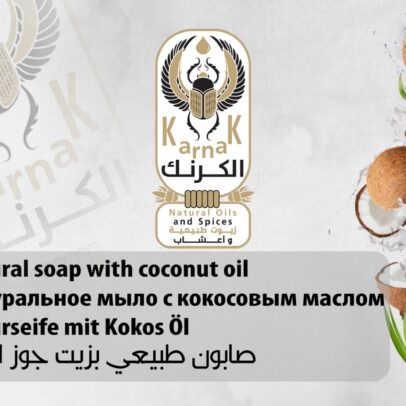
Select options
This product has multiple variants. The options may be chosen on the product page


